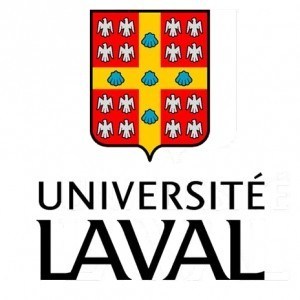Photos of university / #ulaval
The Electrical Engineering program at Laval University offers a comprehensive curriculum designed to equip students with essential knowledge and skills in the field of electrical systems, electronics, and energy management. This program aims to prepare graduates for careers in innovative technological development, research, and various industries such as telecommunications, automation, power systems, renewable energy, and electronics manufacturing. Throughout the program, students engage with foundational courses in mathematics, physics, and computer science, which establish a solid basis for advanced specialization topics. Core courses include circuit analysis, digital systems, signal processing, electrical machines, and control systems, providing students with a thorough understanding of how electrical devices and systems operate and interact. The program emphasizes practical learning through laboratory work, projects, and internships that foster hands-on experience and problem-solving abilities in real-world scenarios. Students are encouraged to develop critical thinking and analytical skills necessary for designing, analyzing, and optimizing electrical systems. The curriculum also offers opportunities for specialization in areas such as power engineering, control and automation, telecommunications, and electronics. Additionally, Laval University promotes research and innovation, enabling students to participate in cutting-edge projects under the guidance of experienced faculty members. The program aims to develop graduates capable of contributing to sustainable development and technological progress, equipped with the ability to adapt to rapidly evolving industry standards and emerging technologies. Excellent career prospects await Laval University electrical engineering graduates in sectors including energy, manufacturing, IT, transportation, and consulting. Graduates leave the program prepared to pursue further studies or to take on engineering roles that demand technical expertise, creativity, and a commitment to lifelong learning. In a word, Laval University’s Electrical Engineering program combines rigorous academic training with practical experience, fostering the next generation of engineers ready to meet the challenges of the modern world with innovative solutions and professional excellence.
The Electrical Engineering program at Laval University offers a comprehensive and rigorous education designed to prepare students for a wide range of careers in the electrical and electronics industries. The curriculum is structured to provide strong foundational knowledge in fundamental engineering principles, including circuit theory, digital systems, control systems, electromagnetic fields, and signal processing. Students will also explore advanced topics such as power systems, telecommunications, embedded systems, renewable energy, and automation, ensuring they are well-equipped to meet the evolving technological demands of the industry.
Throughout the program, students engage in both theoretical coursework and practical laboratory work, emphasizing hands-on experience and real-world problem solving. The program fosters critical thinking, innovation, and technical skills, enabling graduates to design, analyze, and improve electrical systems efficiently and effectively. In addition to core technical courses, students have the opportunity to develop expertise in related areas such as computer engineering, software development, and project management.
Laval University’s Electrical Engineering program places a strong emphasis on research and innovation. Students are encouraged to participate in research projects, internships, and collaborations with industry partners, which enhance their practical skills and professional networks. The program also prepares students for graduate studies and research in specialized fields of electrical engineering, opening pathways to careers in academia, industry, or entrepreneurship.
The faculty comprises experienced researchers and professionals dedicated to providing high-quality instruction and mentorship. Modern laboratories, up-to-date technological resources, and a dynamic academic environment support students’ learning and development. Graduates of the program emerge with the knowledge, skills, and confidence to contribute to the development of sustainable energy solutions, smart grids, robotics, communication systems, and other cutting-edge technological developments.
Overall, Laval University’s Electrical Engineering program aims to produce innovative, responsible, and highly skilled engineers ready to meet the challenges of the 21st century. With a focus on experiential learning, research, and industry collaboration, students are prepared for successful careers across a diverse array of sectors in electrical engineering, or to continue their education through graduate studies.
The Bachelor of Electrical Engineering at Laval University requires students to complete a comprehensive curriculum designed to provide a solid foundation in electrical engineering principles and practices. The program typically includes a combination of core courses, specialized electives, laboratory work, and project-based learning. Students must acquire knowledge in fundamental subjects such as mathematics, physics, and computer science, which underpin electrical engineering concepts. Advanced courses cover areas like circuit analysis, digital systems, electronics, electromagnetism, signal processing, power systems, and control systems.
In addition to theoretical coursework, students participate in laboratory sessions that develop practical skills in designing, analyzing, and testing electrical systems. Capstone projects often serve as a culminating experience, allowing students to apply their knowledge to real-world engineering problems under faculty supervision. The program emphasizes the development of technical competencies, problem-solving abilities, and teamwork skills essential for professional success.
To graduate, students must also complete complementary courses in ethics, management, and communication to prepare for the ethical practices and collaborative environments typical of engineering workplaces. Internships or co-op placements may be encouraged or required to provide industry exposure and practical experience. The program adheres to accreditation standards set by engineering regulatory bodies, ensuring that graduates meet professional licensing requirements.
Overall, the Laval University Electrical Engineering program aims to produce competent, innovative, and responsible engineers capable of contributing to advancements in electrical technologies and solving complex engineering challenges in a sustainable and ethical manner.
The financing options for the Electrical Engineering program at Laval University are designed to support both domestic and international students through a variety of funding opportunities. The university offers several avenues for financial aid, including government grants, scholarships, bursaries, and loans. Students are encouraged to apply early to maximize their chances of receiving financial assistance. Laval University provides merit-based scholarships for outstanding academic performance, which are available to both new and returning students. These scholarships are awarded based on academic achievements, leadership qualities, and extracurricular involvement. Additionally, the university participates in various provincial and federal financial aid programs, such as the Quebec Student Assistance Program (Aide financière aux études), which offers loans and bursaries tailored to the financial circumstances of students. International students may also explore external funding sources, such as scholarships from their home countries or private organizations that support international education. Laval University’s Financial Aid Office provides comprehensive guidance on eligibility criteria and application procedures for all available funding opportunities. Furthermore, part-time employment opportunities within the university campus are available to students seeking to finance their studies while gaining work experience. The university has partnerships with local industries and companies that sometimes offer internships and cooperative education placements, which may include stipends or remuneration. It is highly recommended for students to regularly consult the university’s official website and contact the Financial Aid Office for the most current information regarding application deadlines, eligibility requirements, and detailed descriptions of each financial support program. By taking advantage of these various funding options, students can effectively plan their finances and focus on their academic pursuits in Electrical Engineering at Laval University.
The Bachelor of Engineering in Electrical Engineering at Laval University is designed to provide students with a comprehensive understanding of the fundamental principles and practices related to electrical systems, electronics, power systems, and control systems. The program aims to develop students' technical skills, problem-solving abilities, and knowledge necessary to innovate and operate effectively in various sectors of the electrical engineering industry. The curriculum includes courses in electrical circuit analysis, digital systems, electromagnetism, signals and systems, control engineering, power generation and distribution, energy management, and advanced electronics. Students also have opportunities to participate in laboratory work, design projects, and internships that enhance practical skills and industry experience. The program emphasizes applied engineering principles, preparing graduates for careers in manufacturing, telecommunications, energy industries, automation, and research and development. The faculty members are experienced professionals and researchers committed to providing a rigorous academic environment with modern facilities and resources. Students are encouraged to engage in innovative projects, participate in technical competitions, and pursue cooperative education placements to strengthen their employability and professional network. The electrical engineering program at Laval University also emphasizes sustainability and energy efficiency, aligning with contemporary challenges in the field. Graduates of this program are well-equipped to pursue advanced studies or enter the workforce as competent electrical engineers capable of contributing to technological advancements and infrastructural development in Quebec, Canada, and internationally. The program typically spans four years for full-time students, culminating in a Bachelor's degree, and may include specializations or minors depending on the student's interests and career goals. Overall, Laval University's Electrical Engineering program offers a balanced education combining theory, practical application, and research, preparing students to meet the evolving demands of the electrical engineering sector globally.

